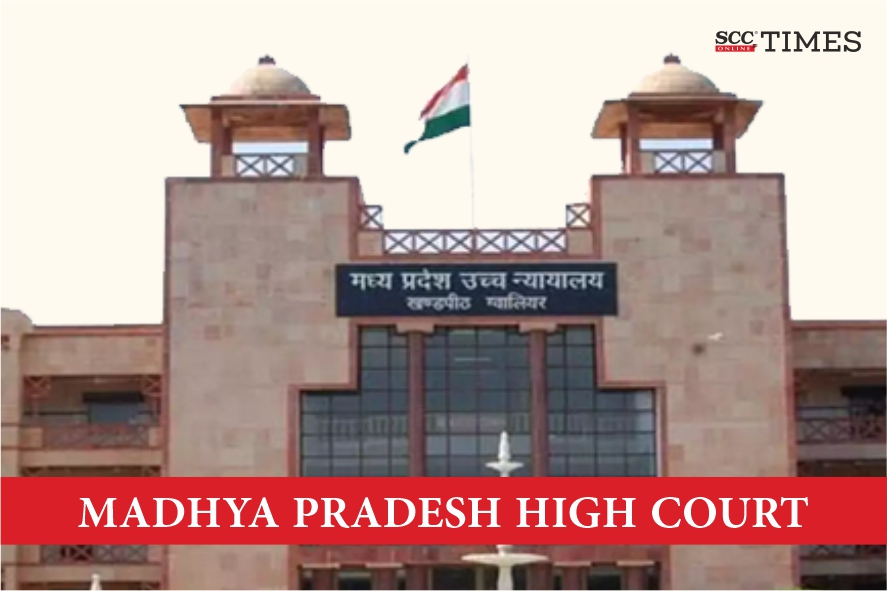Madhya Pradesh High Court: In a writ petition seeking police protection and validation of an inter-religious marriage under the Special Marriage Act, 1954, a single-judge bench comprising of G.S. Ahluwalia, J., dismissed the petition and held that while the Special Marriage Act permits inter-religious marriages, it does not override prohibitions under personal law, resulting in the marriage being irregular and not valid.
Factual Matrix
In the instant matter, the petitioners, who are in love and belong to different religions, approached the court seeking protection and permission to marry under the Special Marriage Act. The petitioner argued that the Special Marriage Act overrides personal laws, making their marriage valid without the need for religious conversion or rituals. While citing Lata Singh v. State of U.P., (2006) 5 SCC 475, the petitioners argued for police protection. However, respondent 5 opposed the petition, alleging theft of jewellery and cash by petitioner 1. The respondent 5 claimed that the marriage is invalid as per Muslim personal law and raised concerns about societal repercussions. The respondents further argued that an interfaith marriage would lead to social boycott and is not entitled to protection.
Moot Point
-
Whether the petitioners are entitled to police protection?
-
Whether the marriage between a Muslim boy and a Hindu girl is valid under the Special Marriage Act and Muslim personal law?
Court’s Analysis
The Court referred to Mohd. Salim v. Shamsudeen, (2019) 4 SCC 130, where the Supreme Court distinguished between valid (sahih), void (batil), and irregular (fasid) marriages under Muslim law. The Court stated that under Muslim law, a marriage (nikah) is a civil contract with specific requirements. The Court further noted that under personal law, a Muslim man’s marriage with a non-Muslim woman who is an idolatress is considered irregular (fasid), not void.
“As per Mahomedan law, the marriage of a Muslim boy with a girl who is an idolatress or a fire-worshipper, is not a valid marriage. Even if the marriage is registered under the Special Marriage Act, the marriage would be no more a valid marriage and it would be an irregular (fasid) marriage.”
The Court stated that “under personal law, performance of certain rituals are necessary for solemnization of marriage. However, if marriage is performed under Special Marriage Act, then such marriage cannot be challenged on the ground of non-performance of such mandatory rituals.” The Court noted that Section 4 of the Special Marriage Act prohibits marriages within certain relationships but does not legalise those which invalid under personal law. The Court opined that the Special Marriage Act allows inter-religious marriages but does not override personal law prohibitions. The Court held that even if the marriage is registered under the Special Marriage Act, it remains irregular under Muslim law.
“But marriage under Special Marriage Act would not legalise the marriage which otherwise is prohibited under personal law.”
The Court asserted that the petitioners do not intend to accept religious conversion and the same complicates the legality of their marriage under both personal law and the Special Marriage Act. The Court stated that since, the petitioners do not express a desire to continue in a live-in relationship if the marriage was not validated, therefore the petition seeking police protection and validation of their inter-religious marriage is liable to be dismissed. The Court stated that “under these circumstances, this Court is of considered opinion that no case is made out warranting interference.”
Court’s Decision
The Court held that marriage, even if registered under the Special Marriage Act, would be considered irregular (fasid) and not valid under personal law. The Court dismissed the petition seeking police protection and validation of an inter-religious marriage under the Special Marriage Act, finding no grounds for interference.
[Sarika Sen v. State of M.P., 2024 SCC OnLine MP 3716, order dated 27-05-2024]
Advocates who appeared in this case:
Shri Dinesh Kumar Upadhyay, Counsel for the Petitioners
Shri K.S. Baghel, Govt. Advocate, Counsel for the Respondent No. 1 to 4/State
Shri Rahul Mishra, Counsel for the Respondent No. 5







